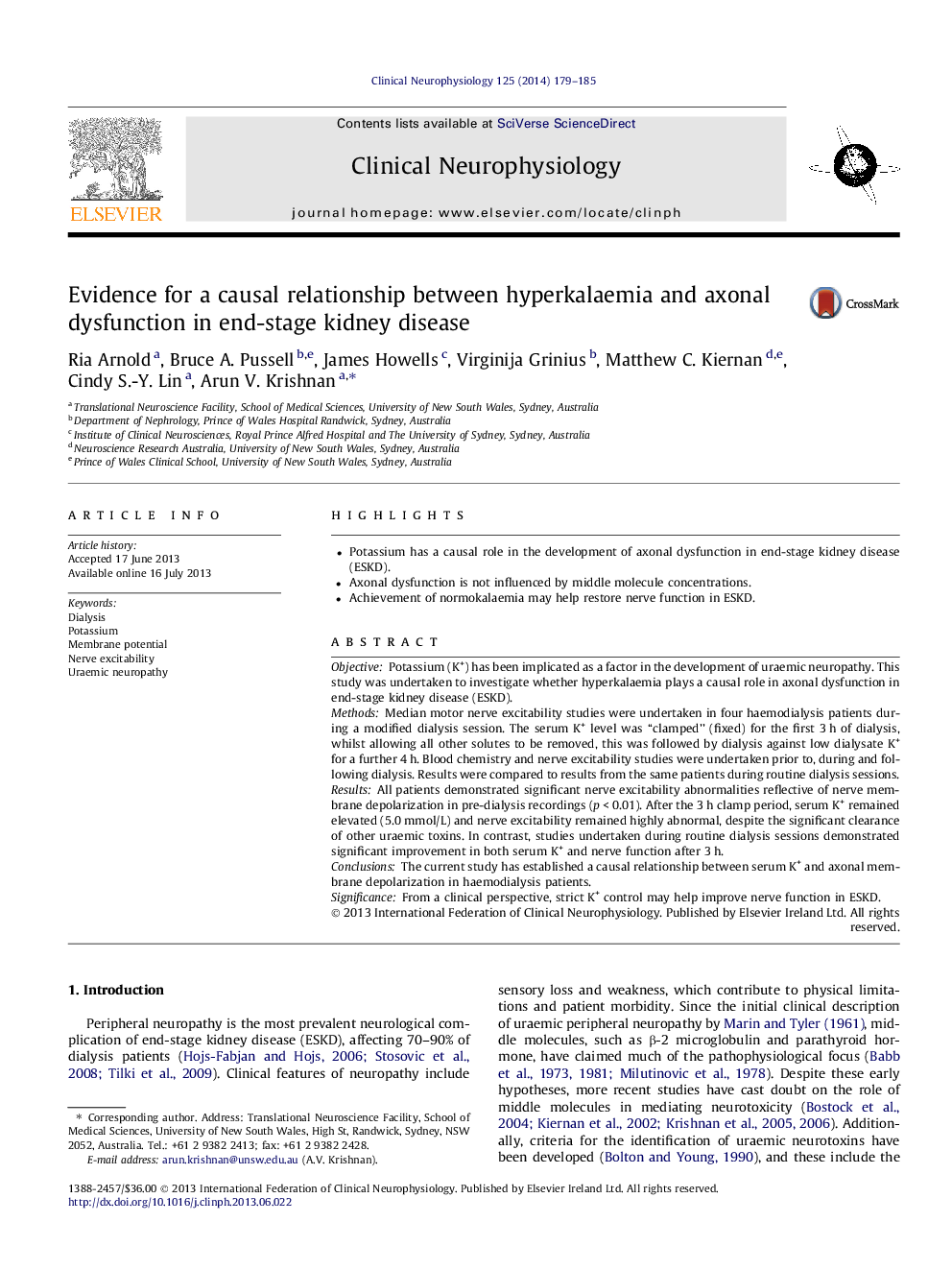| Article ID | Journal | Published Year | Pages | File Type |
|---|---|---|---|---|
| 3043648 | Clinical Neurophysiology | 2014 | 7 Pages |
•Potassium has a causal role in the development of axonal dysfunction in end-stage kidney disease (ESKD).•Axonal dysfunction is not influenced by middle molecule concentrations.•Achievement of normokalaemia may help restore nerve function in ESKD.
ObjectivePotassium (K+) has been implicated as a factor in the development of uraemic neuropathy. This study was undertaken to investigate whether hyperkalaemia plays a causal role in axonal dysfunction in end-stage kidney disease (ESKD).MethodsMedian motor nerve excitability studies were undertaken in four haemodialysis patients during a modified dialysis session. The serum K+ level was “clamped” (fixed) for the first 3 h of dialysis, whilst allowing all other solutes to be removed, this was followed by dialysis against low dialysate K+ for a further 4 h. Blood chemistry and nerve excitability studies were undertaken prior to, during and following dialysis. Results were compared to results from the same patients during routine dialysis sessions.ResultsAll patients demonstrated significant nerve excitability abnormalities reflective of nerve membrane depolarization in pre-dialysis recordings (p < 0.01). After the 3 h clamp period, serum K+ remained elevated (5.0 mmol/L) and nerve excitability remained highly abnormal, despite the significant clearance of other uraemic toxins. In contrast, studies undertaken during routine dialysis sessions demonstrated significant improvement in both serum K+ and nerve function after 3 h.ConclusionsThe current study has established a causal relationship between serum K+ and axonal membrane depolarization in haemodialysis patients.SignificanceFrom a clinical perspective, strict K+ control may help improve nerve function in ESKD.
